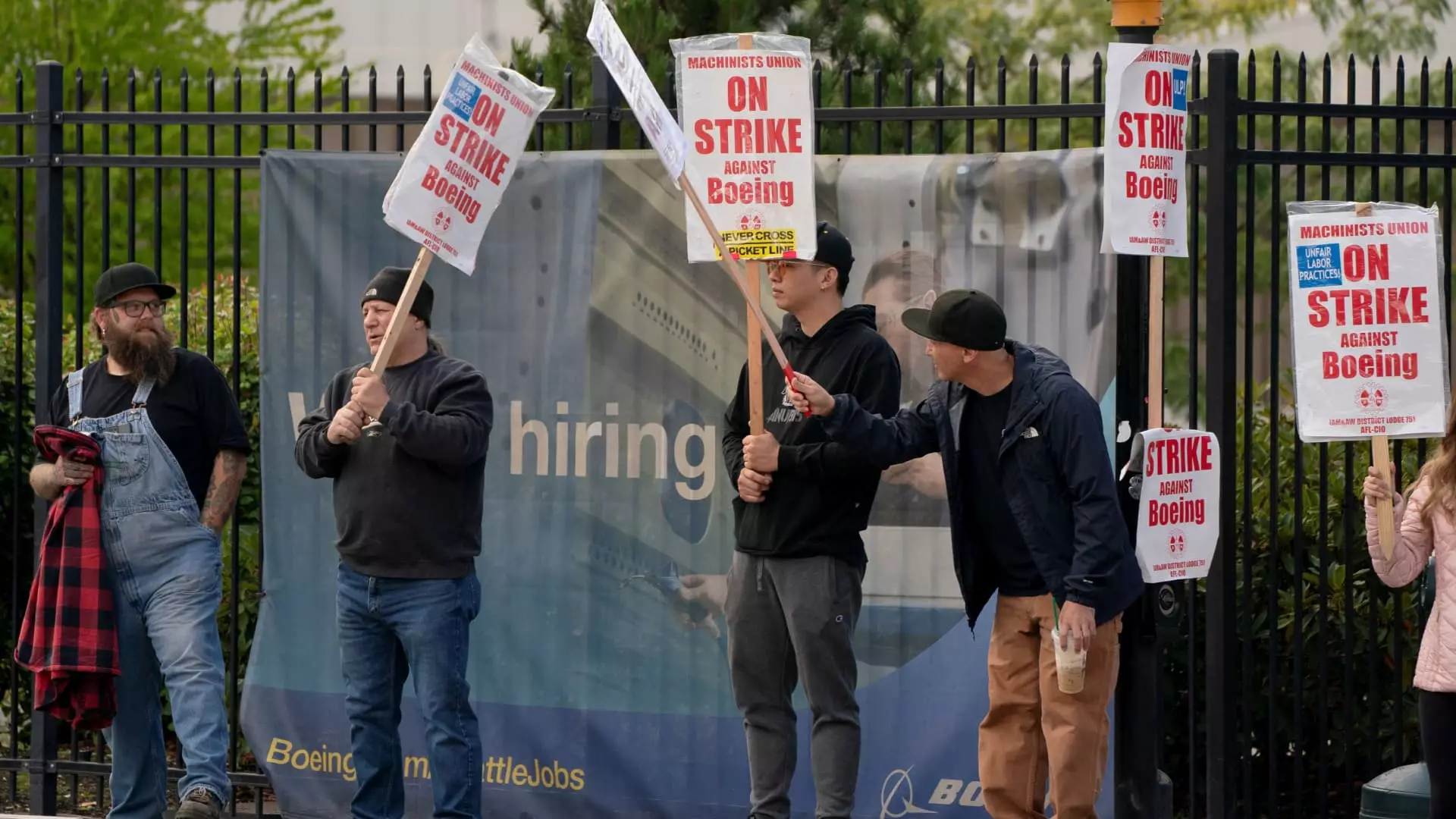In light of an ongoing labor strike involving over 30,000 factory employees, Boeing has announced a series of significant cost-cutting strategies aimed at preserving financial stability. As the company grapples with the repercussions of a workforce walkout, it faces a pivotal moment that could reshape its operational framework. With a hiring freeze, restrictions on nonessential travel, and a concerted reduction in supplier spending, Boeing is navigating tumultuous waters in a bid to maintain its financial health while striving to rectify labor relations.
The immediate impact of the strike, which commenced after workers overwhelmingly rejected a tentative agreement, has been strikingly evident, particularly in Boeing’s Seattle-area facilities. The cessation of work in factories has drastically curtailed aircraft production levels, forcing the company to implement “significant reductions” in supplier spending. Boeing CFO Brian West acknowledged the necessity of these retailorings, emphasizing that halting many purchase orders for key aircraft models like the 737 Max, 767, and 777 is essential to preserve cash flow. This situation exemplifies the interconnected nature of manufacturing; suppliers reliant on Boeing’s business are now facing potential financial strain as a result of the labor unrest.
In an organizational communication, West expressed the company’s commitment to resolving the labor dispute. By reiterating Boeing’s willingness to engage in good faith negotiations, he highlighted the importance of input from the workforce to help forge a new contract that would meet the needs of both employees and the corporation. The emphasis on collaboration indicates a recognition of the fragile environment in which Boeing operates—a landscape intricately woven with employee sentiment and corporate obligations. While West underscored that Boeing would protect funding related to safety, quality, and customer support, the broader repercussions of the strike loom large.
The financial implications of this labor disruption are poised to fluctuate based on the duration of the strike. West’s appearance at a recent Morgan Stanley conference revealed that Boeing is bracing for rough times ahead, including the challenging proposition of temporary furloughs for a wide range of employees. This consideration reflects the company’s broader adherence to a strategy committed to cash conservation amidst rising operational costs. Alarmingly, credit rating agencies such as Moody’s and Fitch have placed Boeing’s ratings under scrutiny amid this turmoil, foreshadowing potential downgrades that could exacerbate an already precarious financial situation.
As Boeing contemplates its position moving forward, the company must balance short-term adjustments with long-term resilience. The prospect of rising borrowing costs due to weakened credit ratings—combined with an already daunting debt load—demands strategic foresight. The challenges presented by the labor strike serve as a reminder of the fragility within the manufacturing sector, where collective employee action can disrupt even the largest of corporations. By proactively seeking solutions that encompass both financial prudence and employee welfare, Boeing has an opportunity to navigate this crisis effectively, ensuring its recovery and future competitiveness in the aviation industry.
While Boeing faces substantial challenges as a result of the strike, its response through strategic cost-cutting measures and a commitment to negotiation indicates a focus on both immediate survival and long-term stability. The path forward demands that the company not only addresses current workforce grievances but also strengthens its own operational foundations for the future.

